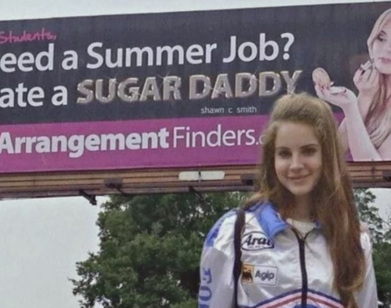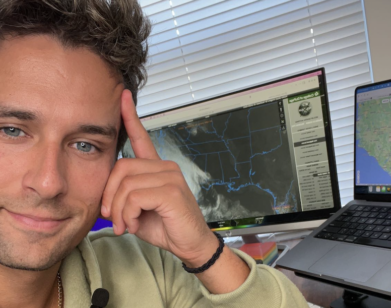LIT
Eliza Clark on Book Twitter, True Crime Junkies, and Her Chilling Sophomore Novel
Eliza Clark began her career as an outsider to the staid British publishing landscape. Her first book, Boy Parts, was a strange, brutal account of a beautiful young woman named Irina who photographs men in compromising positions and occasionally murders them. It was dark, funny and asked uncomfortable questions about our tendency to equate beauty with morality. When it was published by the indie press Influx, in 2020, the novel became a word-of-mouth sensation. An agent, and book deals with Faber and Harper Collins, followed.
Recently, just as her new book, Penance, was about to be published, Clark was named one of Granta’s Best of Young British Novelists. Penance, as dark and strange as Boy Parts, tells the story of a group of teenage girls who accidentally murder a classmate, and it’s told through the eyes of a journalist trying to resurrect his career with a book about the case. Here, Clark examines our fascination with true crime as a way to make sense of gruesome events, but she also probes our inclination to sort the world neatly into villains and victims. Almost all the girls in Penance are cruel in their own ways; the one who isn’t happens to character with a comparatively easy, stable home life.
Before the book’s U.S. release, Clark and I spoke about empathy, writing fucked up characters, the uncomfortable sides of industry acclaim, and why she’ll never get a good review from the UK Times (though the New York Times gave Penance a rave).
———
ELIZA CLARK: Hello!
RACHEL CONNOLLY: Thank you for doing this.
CLARK: No problem.
CONNOLLY: Something I really want to talk about is the sympathy in Penance. It’s a book about some girlies who do a bad thing, but all of these characters come off as very sympathetic in their own way.
CLARK: When I was reading about some of the cases that are quite similar to the one that I’m writing about in Penance, it’s just really hard not to empathize with a lot of the people involved. Nobody does something like this because things are going super well for them. There’s always something kind of terrible and tragic happening. It’s important, especially if you’re writing fiction, to try and paint as three-dimensional a portrait as possible, for reasons of both craft and readability. If the characters you’re reading about don’t feel quite dense and human, then it’s going to be a difficult book to read. But also, from a realism and almost political perspective, it’s important to explain the sociopolitical and psychological circumstances that can push people into these very extreme acts. I think particularly because teenagers are so–
CONNOLLY: Fucked up?
CLARK: Yes, fucked up, and their personalities are just not completely formed. In a lot of cases that involve young people, there’s always some element that prevents them from understanding consequences, which I find interesting. This is actually kind of a but, or a feature, of my personality, depending on how you look at it, but I’m almost pathologically empathetic. I struggle not to look at things from lots of different points of view. I have a very obsessive brain and a lot of trouble with intrusive thoughts, and it’s almost an extension of that that I’m constantly analyzing and looking at things from every possible point of view.
CONNOLLY: You kind of notice that in the book. I think it’s one of your real strengths as a fiction writer. Everyone in the book has all of these layers and dimensionality, and there’s a real sense of care. Which I find really interesting, because the synopsis of your book sounds really brutal, cold, and ghastly, and it’s much warmer than you’d expect.
CLARK: Yeah, it’s maybe an encapsulation of me as a person. I found that in high school, when I did engage in being cruel to people, I would think about it a lot afterwards and really struggle to not feel super, super guilty. I guess that’s almost a mission statement for the book, the idea that when you’re in high school, everybody’s in this cycle of being a bully but also being bullied at the same time. It’s always people acting and reenacting power dynamics that they’re subject to, which is really interesting.
CONNOLLY: Some of why the characters are sympathetic is their parents. They make you understand why they’re so insufferable. There’s a character in the book who’s this sort of Brexit-y, really full-of-himself guy, theatrical in a really pompous way. Was there an inspiration for him? Can you explain him to an American.
CLARK: Around 2016, we were in such a ridiculous place with politics, where a lot of legacy media cottoned onto the fact that if you just get the most extreme and ridiculous guy to come in and do a column for you–
CONNOLLY: That’s so true.
CLARK: You could sell more papers or get more clicks. It was legacy media really discovering the power of rage-bait as a concept, and he’s almost a smashed-together version of a bunch of different Z-list media figures and British politicians. I was really conscious of making him totally cartoonish. I got a really negative interview in The Sunday British Times where the writer really took umbrage with this character. But in a way that was like, have you not read your own paper?
CONNOLLY: So the book is also about true crime as a genre. It doesn’t make its case in a really overt way, but it’s quite a sly send-up of the way people interact with that genre. Were you reading a lot of that stuff when you were writing it?
CLARK: Yeah, I’m way more ambivalent about true crime than people think I am from the book. My narrator is definitely very performatively anti-true crime, which is where it comes from. I was reading a lot of what I would consider to be really good, high-quality true crime to get a sense of the structure, books like The People Who Eat Darkness by Richard Lloyd Perry and The Sleep of Reason by Daniel James Brown, which are all very empathetic and very careful and go out of their way to set up sociopolitical contexts for each crime.So it was going from that stuff, then back to the odd Channel 5 documentary that’s been re-uploaded to YouTube to remind myself, “God, these are just so rubbish.” It’s often so sanded down, to give you almost the most unreal, cartoonish version of it.
CONNOLLY: You see people solving crimes on TikTok, people banding together on Instagram when somebody goes missing. Engagement with these things has become really salacious, as if it’s entertainment, and it definitely seems to have gotten worse with social media.
CLARK: The weird citizen-detective stuff that’s popped up so much in the last few years is so toxic. They’re doing it in the same way that I would use RuPaul’s Drag Race or something, except they’re talking about dead children. It feels like the internet just lends itself to dehumanization in a lot of ways, to treating people as fictional characters.
CONNOLLY: Okay, a different topic, but you are a Granta Best Novelist, which you found out before this book was coming out. How was dealing with those two things in tandem?
CLARK: It was actually really stressful, to be honest. My publication experience for my first book was strange in that it was during a pandemic and it was an independent press, but it also had this long tail, which gave me a bit of a sense of what could happen for my second book. Basically, I had enough knowledge to go absolutely insane about it. I’d seen tell of how bad [it was] the day they announced the 2013 list. I was on UK book Twitter and saw how toxic and nasty it was. It seemed like it was very racialized. Basically, there were quite a few non-white authors on the 2013 list that people were angry that they hadn’t heard of. I stayed off Twitter. I handed it over to my boyfriend because I didn’t think it was going to be that bad.
CONNOLLY: It’s such a weird thing because you don’t know what they actually want. Do want me to see it? Because otherwise, you would do it privately.
CLARK: It’s so odd. You’re just being subject to people’s drive-by frustration, where they’re not angry at the Granta list, they’re angry at a trend in publishing that places far too much importance on youth. That is bad and it should be criticized, but when you are the subject of everybody grumbling about that and there’s no positivity about it at all either, it’s just very–when I found out, I genuinely just had this sinking feeling, because I knew this would happen, but it almost meant that the actual day wasn’t that bad for me.
CONNOLLY: You expect the worst.
CLARK: Exactly. I’d been expecting it for months, so it wasn’t as bad as I thought it could be. If you hadn’t seen people whispering about how bad 2013 was for the last three years of your day job, then I could see it being a really awful shock. I just think it’s so British. Lists are so weird. Everybody knows those kinds of lists are weird. Everybody knows that they’re kind of arbitrary, but I think it’s just such a miserably British approach that they can’t be like, “Yay, I’m on the list,” without [also] being like, “But I understand that lists are arbitrary and, in many ways, I actually don’t deserve to be on the list.” Do you know what I mean?
CONNOLLY: Yeah. It’s not like you’ve self-nominated.
CLARK: You’re almost left of being in the position of having to be like, “I’m so sorry that I got shortlisted for something.”
CONNOLLY: Are you excited for your book to come out in the US?
CLARK: Yeah. I’m so nervous about any further exposure. I’m just always primed to be shouted at.
CONNOLLY: What would you be shouted out for?
CLARK: I’ve run this scenario a couple of times in my head of what Penance could get me canceled for. I could see fans of particular true crime podcasts, people in that positive, slightly lib-y, feminist-y, pseudo-feminist-y true crime space really not liking it, and therefore inventing reasons to cancel me from it.
CONNOLLY: So, an extremely niche canceling is on the cards.
CLARK: In a lot of ways, a lot of cancellations are super niche.
CONNOLLY: It’s really true.







